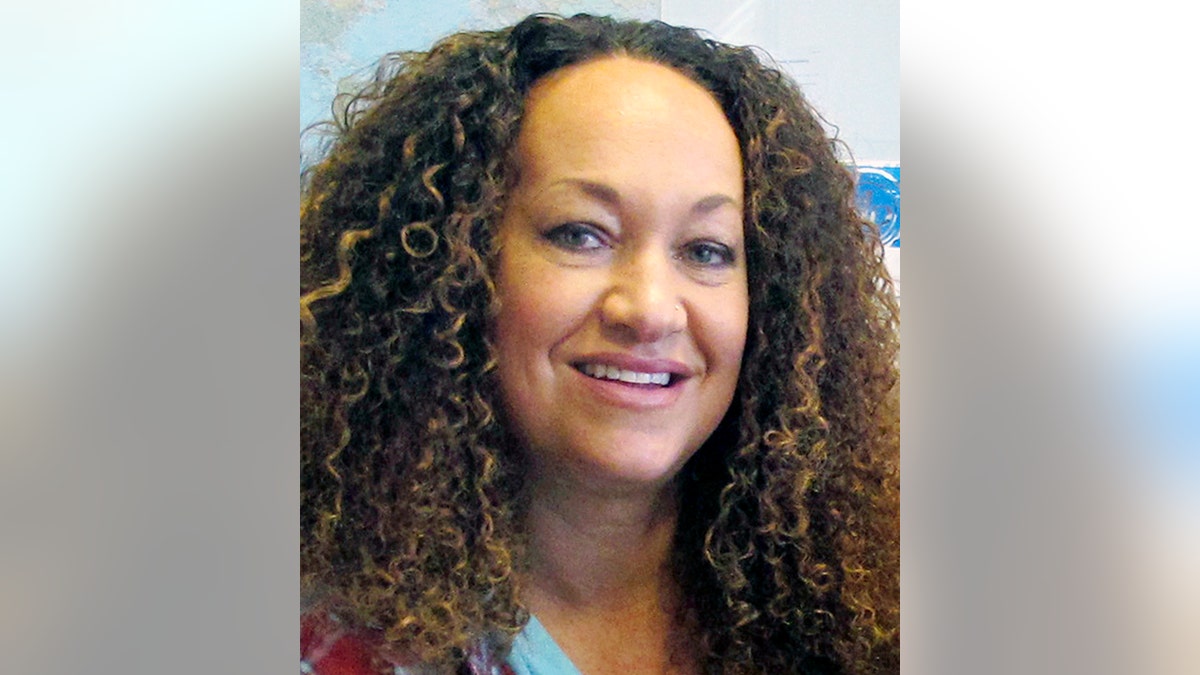
Rachel Dolezal is pictured in March 2017, six months after she changed her name to Nkechi Diallo. (AP Photo/Nicholas K. Geranios, File)
Former Spokane NAACP President Nkechi Diallo -- who became infamous as Rachel Dolezal, a white woman identifying as black -- was booked and fingerprinted at a Washington state jail Monday as she awaits trial on multiple charges, including welfare fraud.
Diallo pleaded not guilty to state charges of first-degree theft by welfare fraud, making false verification and second-degree perjury last month. A judge ordered her freed on her own recognizance and gave her a deadline of Monday evening to report to the Spokane County jail for booking and fingerprinting.
Diallo, who changed her name from Rachel Dolezal in October 2016, is accused of receiving more than $8,800 in food and childcare assistance illegally between August 2015 and November 2017.
RACHEL DOLEZAL HIT WITH FELONY THEFT CHARGE IN WELFARE FRAUD CASE
The welfare fraud case started in March 2017 after a state investigator received information that Diallo had written a book --her autobiography, "In Full Color." The investigator reviewed Diallo's records and found that she had been reporting her income as usually less than $500 per month, court documents said.
However, a subpoena of her bank statements and other records showed Diallo had deposited nearly $84,000 into her account from 2015-17, without reporting most of it to the state Department of Social and Health Services.
The money came from book sales, speaking engagements, soap making, doll making and the sale of her art, according to the case file.
Diallo did report a change of circumstance to the state agency, saying she did a one-time job in October 2017 worth $20,000, court documents show.
Rachel Dolezal, as she was known then, achieved international infamy in June 2015 after her parents, with whom she has long feuded, told reporters their daughter was white but was presenting herself as a black activist.
She has said that she grew up near Troy, Mont., and started to change her perspective as a teenager, after her religious parents adopted four black children. She decided some years later that she would identify publicly as black.
In addition to resigning as Spokane NAACP president, she was kicked off a police oversight commission, lost a position as a freelance columnist for a weekly newspaper in Spokane and was fired from her job teaching African studies at nearby Eastern Washington University.
The Associated Press contributed to this report.









































